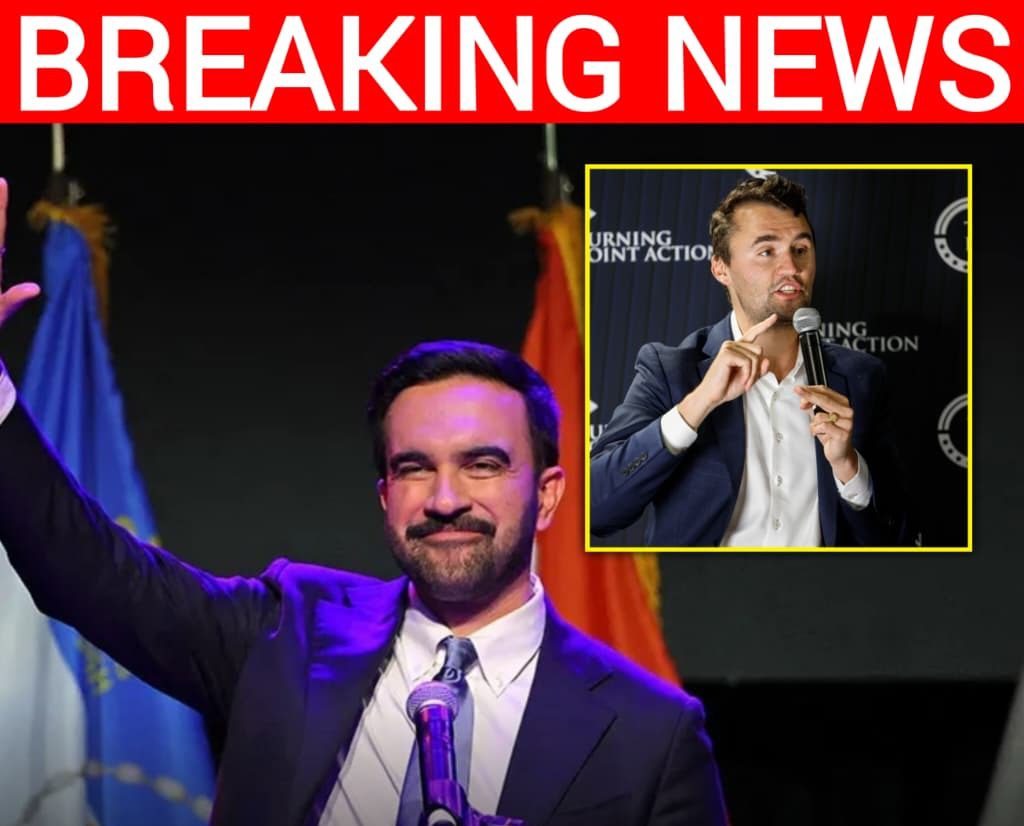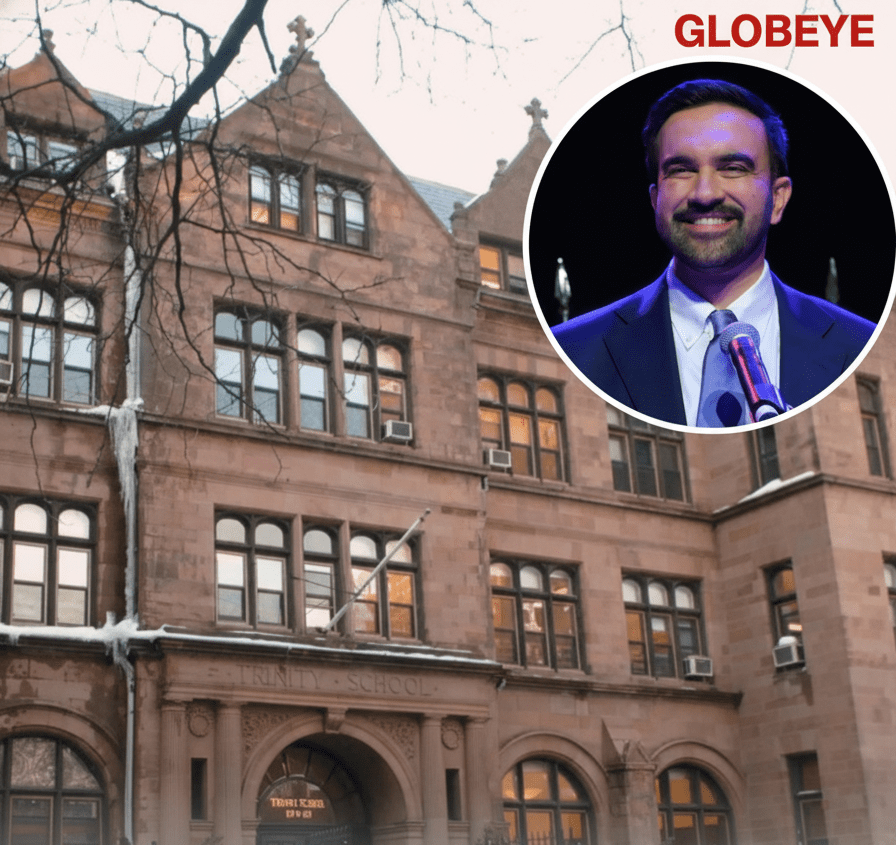Charlie Kirk Warns Zohran Mamdani’s Shocking Win Isn’t About Politics — It’s a “Distress Signal” from a Generation That’s Given Up on the American Dream
Charlie Kirk, one of the most recognizable conservative commentators in America, has sounded a warning that cuts deeper than a typical political analysis. In a candid reflection following Zohran Mamdani’s stunning 2025 New York City mayoral victory, Kirk described the election results as something far more significant than a political win for the left — he called it a “distress signal” from Generation Z.
“This is yet another distress signal by young people,” Kirk said. “They’re not voting for Marxism or socialism because they studied it and loved it. They’re doing it to say, ‘If you’re not going to fix our lives economically, we’re going to get very radical politically.’”
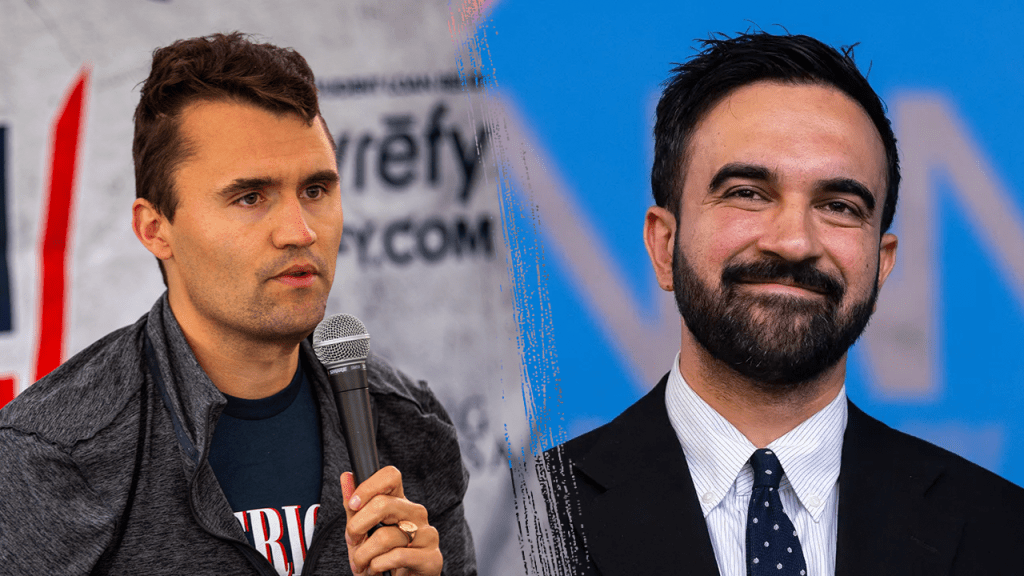
The remarks, delivered during his post-election commentary on the Charlie Kirk Show, come as the Republican Party grapples with the shifting political landscape shaped by a generation facing historic financial pressures. The data, and the emotional undercurrent driving it, paint a picture that Kirk insists conservatives can’t afford to ignore.
Recent surveys back up his argument. According to a 2025 Deloitte study, nearly half of Gen Z adults — 48% — say they don’t feel financially secure. The same report reveals that 55% list the cost of living or unemployment as their top concern. These aren’t partisan talking points — they’re indicators of a generational crisis. And that crisis is shaping votes.
In the New York City mayoral election, Zohran Mamdani, a 34-year-old Democratic Socialist, pulled off an upset that shook the establishment. He defeated both former Governor Andrew Cuomo and Republican Curtis Sliwa with a commanding share of the youth vote. CNN’s exit polling shows that a staggering 78% of voters aged 18 to 29 supported Mamdani, a margin so wide it singlehandedly flipped the outcome in several boroughs.
Kirk, who has spent the better part of a decade building Turning Point USA into a youth-focused conservative force, sees this as a wake-up call. “Most people are missing the point of really what this is,” he said, speaking with visible frustration. “This isn’t about socialism’s appeal. It’s about economic desperation.”
And the numbers prove him right.
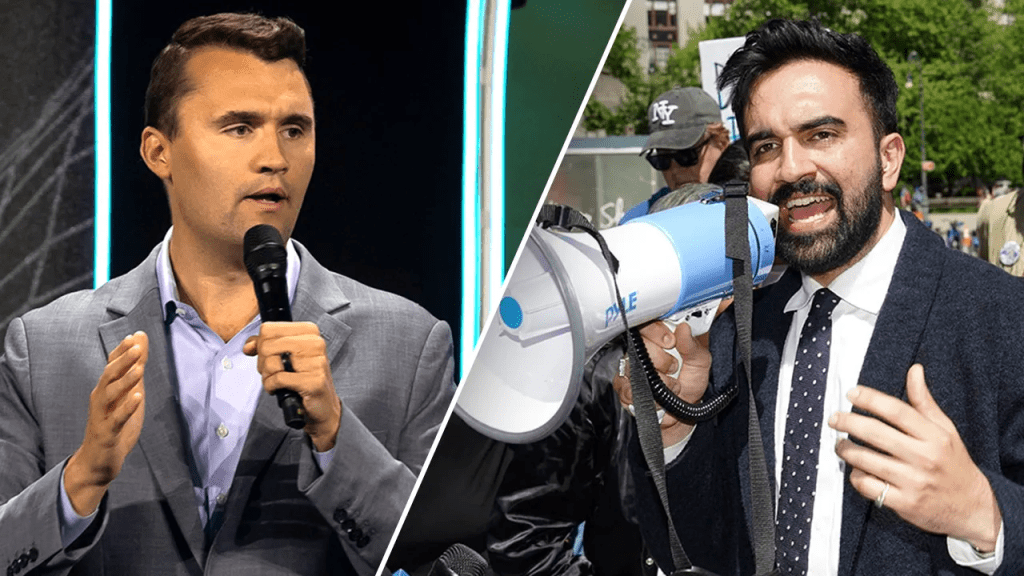
The median age of a first-time homebuyer in America has now reached 40, according to the National Association of Realtors. Just five years ago, it was 33. The percentage of home purchases made by first-time buyers has plunged to 21%, the lowest on record. Meanwhile, data from The Guardian shows that 60% of college graduates in mid-2025 were still searching for their first full-time jobs months after graduation.
When an entire generation enters adulthood and feels locked out of financial stability, the result is predictable: radicalization. But Kirk argues that this isn’t inevitable — it’s preventable.
“This is a crisis of hope,” he said. “Young people don’t believe in upward mobility anymore. They think the system is rigged against them, and instead of fixing it, our political class mocks them for complaining. So they turn to politicians who promise them fairness, even if those promises are built on fantasy.”
Mamdani’s campaign capitalized on that feeling. His message — affordable housing, debt relief, and economic justice — resonated in a city where rent has soared over 30% in five years, and wages haven’t kept up. But Kirk believes the problem isn’t just local. It’s national, and it’s growing.
“We’ve created an economy that punishes ambition,” Kirk said, pointing to inflation, the devaluation of the dollar, and a labor market dominated by low-wage gig jobs. “If you’re 25 and living in your parents’ basement, it’s not because you’re lazy — it’s because you’ve been priced out of the American Dream.”
His words reflect a broader concern among conservative thinkers that economic discontent — if left unaddressed — will continue to fuel left-wing populism. But Kirk’s approach isn’t just to criticize the left’s response; he’s challenging Republicans to confront the root causes.
“Conservatives can’t win by just saying ‘no’ to socialism,” he said. “We have to say ‘yes’ to something better. We have to fight for an economy that rewards work, not bureaucracy.”
In that sense, Kirk’s message echoes historical parallels. The 1930s saw economic despair drive young voters toward New Deal liberalism. The 1970s, with inflation and stagnation, gave rise to Reagan’s promise of economic renewal. Now, Kirk argues, it’s happening again — and the conservative movement’s survival depends on whether it adapts fast enough.

The data backs the urgency. A 2025 Business Insider report found that 48% of Gen Z adults feel financially insecure, while 75% of voters under 30 supported Mamdani’s progressive platform. More than half of Gen Z identifies as “financially anxious,” a phrase that captures not just worry, but disillusionment.
But where progressives see an opportunity to expand government control, Kirk sees a mandate for reform through responsibility and empowerment. “Young people want results,” he said. “They don’t care about talking points. They care about whether they can afford rent, whether they can buy a house, and whether their future means anything.”
That pragmatic streak, Kirk argues, is why conservatives shouldn’t dismiss Gen Z as lost. Instead, he believes they should engage them directly on issues like entrepreneurship, innovation, and affordability — areas where conservative policies could actually deliver.
He also warned against Republican complacency. “You can’t tell a generation that’s drowning financially that everything’s fine because GDP is up,” he said. “If you’re under 30, the GDP means nothing to you when your rent just jumped by $600.”
For Kirk, the Mamdani victory isn’t proof that socialism is winning hearts — it’s proof that capitalism has stopped working for too many Americans. “We’ve let globalism hollow out our middle class,” he said. “Now young people are demanding change. We can either lead that change or lose them forever.”
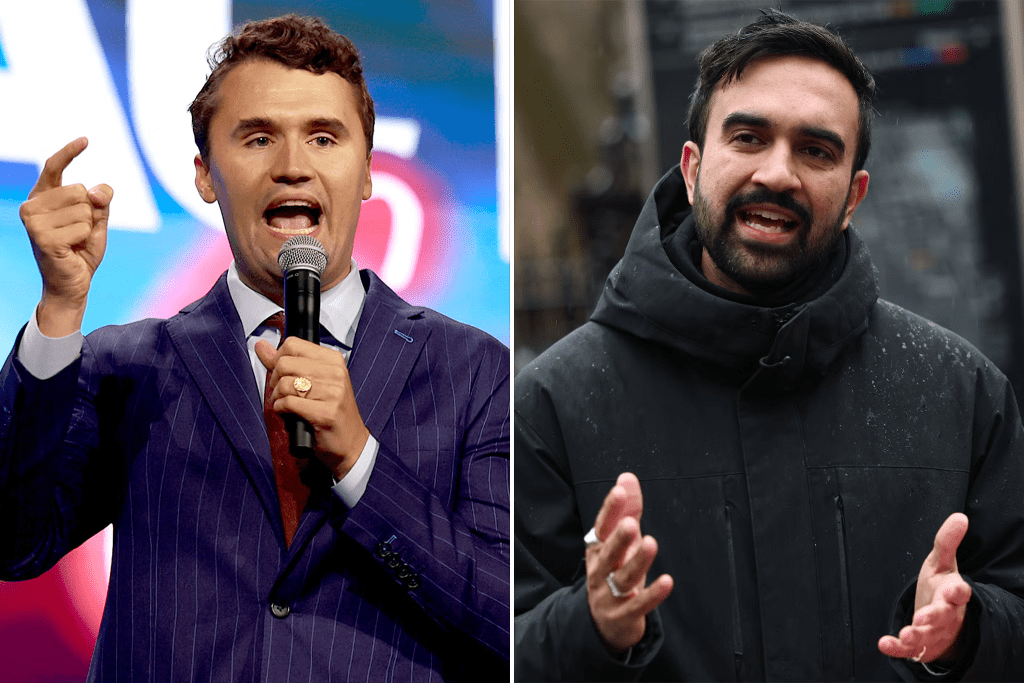
It’s a rare moment of introspection in a political climate defined by shouting matches and tribalism. And it may be exactly the kind of message conservatives need to hear before 2026.
Because beyond the talking points, Kirk’s words strike a chord with something deeper — a generational hunger for meaning and stability in a world that feels increasingly out of control.
He ends his commentary not with blame, but with a challenge: “We need to fix the economy from the ground up — not just for corporations, but for ordinary Americans. Because if we don’t, we’re not just losing elections. We’re losing a generation.”
As the 2026 midterms loom, the warning is clear. The future of politics won’t be decided by slogans or party loyalty — it will be decided by whether the next generation believes the system still works for them. And right now, as Kirk bluntly put it, “They’re telling us it doesn’t.”
